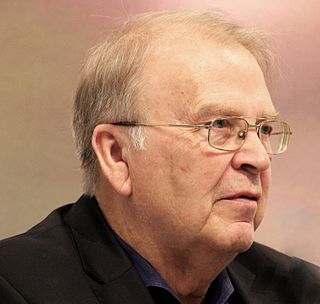
Karl Georg Büchner was a German dramatist and writer of poetry and prose, considered part of the Young Germany movement. He was also a revolutionary and the brother of physician and philosopher Ludwig Büchner. His literary achievements, though few in number, are generally held in great esteem in Germany and it is widely believed that, had it not been for his early death, he might have joined such central German literary figures as Johann Wolfgang von Goethe and Friedrich Schiller at the summit of their profession.
Young Germany was a group of German writers which existed from about 1830 to 1850. It was essentially a youth ideology. Its main proponents were Karl Gutzkow, Heinrich Laube, Theodor Mundt and Ludolf Wienbarg; Heinrich Heine, Ludwig Börne and Georg Büchner were also considered part of the movement. The wider group included Willibald Alexis, Adolf Glassbrenner, Gustav Kühne, Max Waldau and Georg Herwegh.

Jakob Michael Reinhold Lenz was a Baltic German writer of the Sturm und Drang movement.
Spiegel Online (SPON) is one of the most widely read German-language news websites. It was founded in 1994 as the online offshoot of the German news magazine, Der Spiegel, with a staff of journalists working independently of the magazine. Today, Spiegel Online is the most frequently quoted online media product in Germany. Spiegel Online International, a section featuring articles translated into English, was launched in autumn 2004.

Wilhelm Genazino was a German journalist and author. He worked first as a journalist for the satirical magazine pardon and for Lesezeichen. From the early 1970s, he was a freelance writer who became known by a trilogy of novels, Abschaffel-Trilogie, completed in 1979. It was followed by more novels and two plays. Among his many awards is the prestigious Georg Büchner Prize.
Büchner is a German language surname related to the word Buche and may refer to:

Danton's Death was the first play written by Georg Büchner, set during the French Revolution.

Woyzeck[ˈvɔʏtsɛk] is a 1979 German drama film written, produced and directed by Werner Herzog and starring Klaus Kinski and Eva Mattes. It is an adaptation of the unfinished play Woyzeck by German dramatist Georg Büchner.
Wolfgang Arthur Reinhold Koeppen was a German novelist and one of the best known German authors of the postwar period.
The Deutsche Akademie für Sprache und Dichtung was founded on 28 August 1949, on the 200th birthday of Johann Wolfgang von Goethe, in the Paulskirche in Frankfurt. It is seated in Darmstadt. It is a society of writers and scholars on matters pertaining to German language and literature in the German sprachraum.
Wolfgang Peters is a former West German slalom canoeist who competed from the late 1960s to the mid-1970s. He won six medals at the ICF Canoe Slalom World Championships with three golds, a silver and two bronzes.
Ulrich Peters is a former West German slalom canoeist who competed in the 1960s and 1970s.
Wolfgang Hilbig was a German author and poet. He was a member of the Socialist Unity Party of Germany.
Wolfgang Büchner is a former East German slalom canoeist who competed in the 1970s. He won a gold medal in the K-1 team event at the 1973 ICF Canoe Slalom World Championships in Muotathal.
Wolfgang Wenzel is a former West German slalom canoeist who competed from the late 1960s to the early 1970s.
Events in the year 1951 in West Germany and East Germany.

Wolfgang Büchner is a German journalist.
Wozzeck is a 1947 German drama film directed by Georg C. Klaren and starring Kurt Meisel, Max Eckard and Helga Zülch. It is based upon the play, "Woyzeck," by Georg Büchner.
This page is based on this
Wikipedia article Text is available under the
CC BY-SA 4.0 license; additional terms may apply.
Images, videos and audio are available under their respective licenses.





